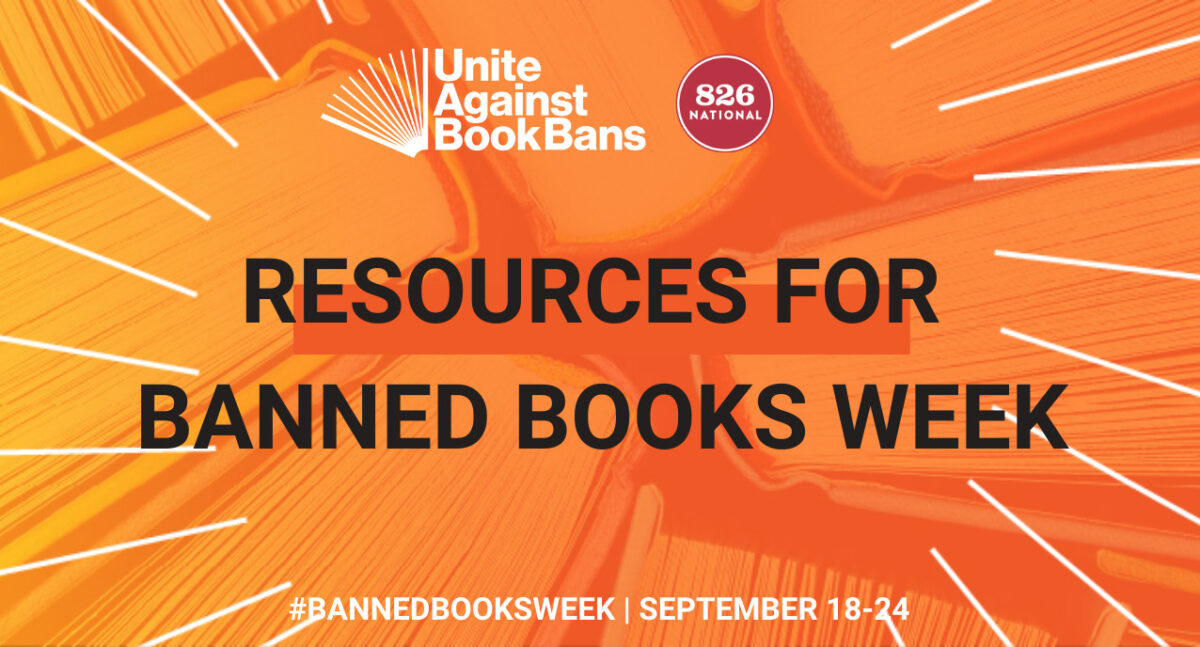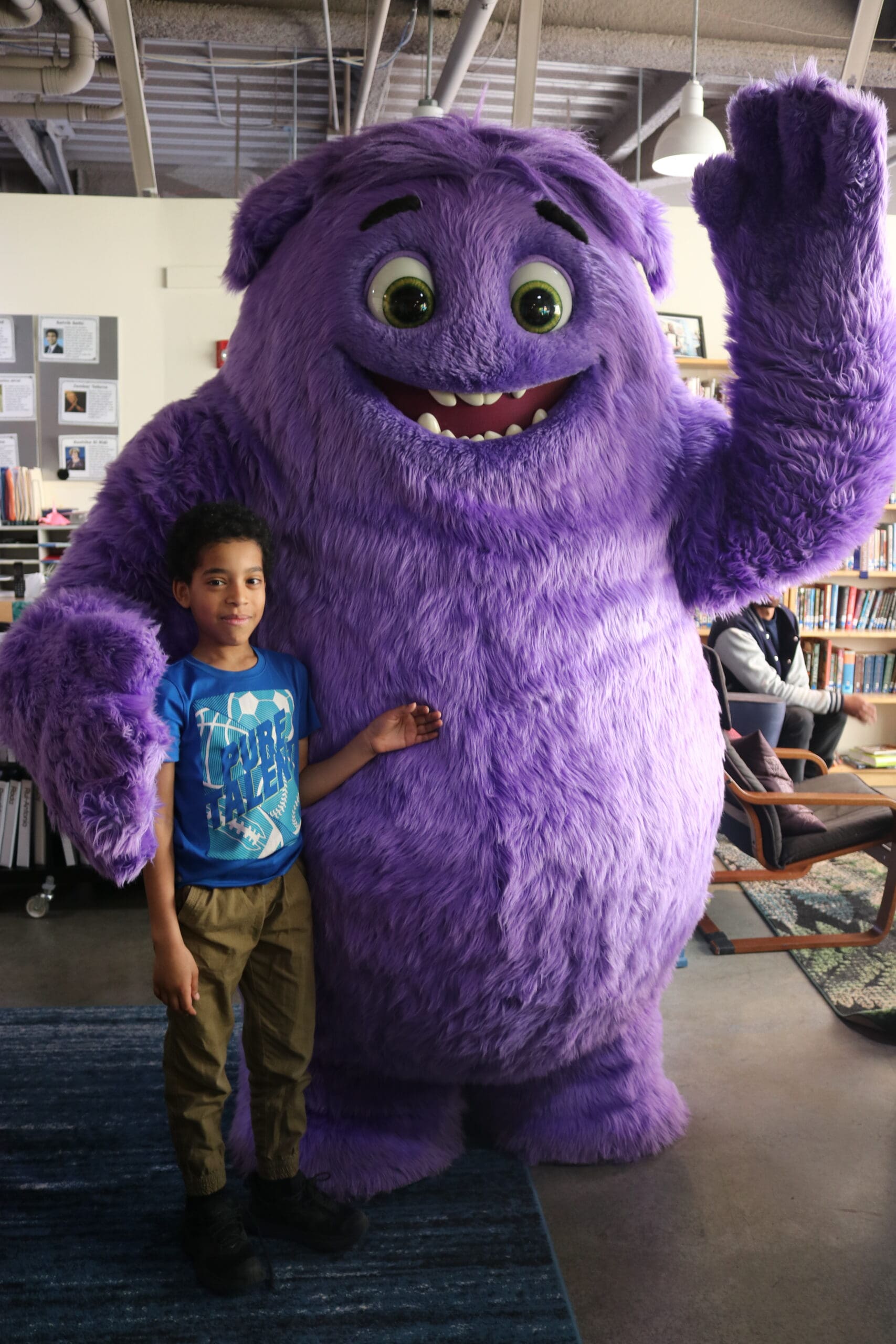
This year’s Banned Books Week theme “Books Unite Us. Censorship Divides Us” highlights how stories connect people and communities together.
“Sharing stories important to us means sharing a part of ourselves,” the American Library Association (ALA) explained. “Books reach across boundaries and build connections between readers. Censorship, on the other hand, creates barriers.”
But “sharing a part of ourselves” can be difficult and challenging, especially for young people. Below, we’ve selected writing exercises from 826 Digital that encourage students to reflect on vulnerable and private moments through poems, short stories, and personal narratives. These prompts create a supportive avenue for young people to learn more about their identities and empower them to share their words with others
For Every One by Jason Reynolds
Newbury Honor award winning author Jason Reynolds (Long Way Down, Ghost, All American Boys) invites young writers to write a letter to themselves about their hopes and dreams, inspired by Jason’s poem “For Every One.” Students will listen to Jason read “For Every One” before reflecting on his delivery and words (“Did certain words sound beautiful together?”) and answering personal questions such as, “What kind of person do you hope you’ll be?”
This creative writing exercise encourages students to identify and express their feelings through Jason’s words.
Grades: 6-12
Poetry as Retelling
Inspired by Eve L. Ewing’s poem “Three Re-Tellings,” this 826NYC lesson plan asks students to write a poem “that retells or reimagines an experience.” In “Three Re-Tellings,” Eve reflects on three moments growing up as a Black woman. In this writing prompt, students will “choose a moment that they experienced or witnessed something unjust or that made them uncomfortable” and reflect through a poem.
Grades: 6-8, by Aarti Monteiro, 826 NYC
Elevate Your Voice with Rachel Eliza Griffiths
Poet and novelist, Rachel Eliza Griffiths asks students to “consider the ordinary in their lives,” and then reflect and write a poem that celebrates these objects and figures. Through this spark prompt, students will “celebrate [their] defiance, [their] courage, [their] fears, [their] vulnerabilities, [their] love and delight in what [they] have chosen to love in [their] life.”
Grades: 7-12
Personal Narratives with Mariama Lockington
This exercise from poet, novelist, and educator Mariama Lockington asks students to revisit powerful memories through writing:
“Writing personal narrative or memoir can be a powerful way to excavate truth and build connection. It requires, however, that you face the page with courage and vulnerability, that you be willing to dig back through your memories—good and bad—and share your heart and life story with others.”
Students will choose between two prompts and discover how an object or a place can evoke different sensations and feelings. Students can choose to share their discovery in a poem, short story, or a personal narrative.
Grades: 7-12
Identity Statements
This spark prompt encourages students to learn more about themselves by creating an identity chart and writing about the most salient parts of them. Students will reflect on questions like “The part of my identity that I am most aware of on a daily basis is________” and “The part of my identity that I wish I knew more about is ______________.” At the end, students are encouraged to share their work – and their identities – with one another.
Grades: 9-12, by Rebeca Darugar
Discover more writing education resources from notable writers, educators, and the 826 Network at 826digital.com.
Learn more about Banned Books Week, and join the conversation online at #bannedbooksweek. Follow along with @826National on Instagram, Twitter, and Facebook.

